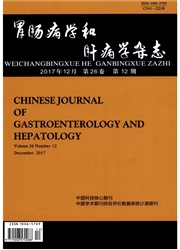

 中文摘要:
中文摘要:
急性胰腺炎(AP)是以胰腺局部炎症反应为主要病理特征,伴或不伴有其他器官功能改变的疾病,具有较高的发病率和死亡率。尽管AP的发病机制至今尚未完全阐明,但白细胞在胰腺的招募以及过度激活被认为是引起AP并使胰腺病情加重、多器官功能衰竭以致死亡的重要原因。趋化因子是一类能够调控细胞定向迁移的细胞因子,通过与相应的趋化因子受体结合从而介导对白细胞的趋化作用。近年来,许多研究显示,趋化因子在AP的发生发展过程中起重要作用。因此,靶向阻断趋化因子及其受体的信号通路可能为AP的治疗提供新思路。
 英文摘要:
英文摘要:
Acute pancreatitis (AP) is an inflammatory disease of the pancreas that causes severe morbidity and mor- tality. A characteristic feature of AP is the excessive recruitment of leukocytes to the site of pancreatic inflammation, which lead to a systemic inflammatory response and potentially fatal multiorgan failure. Leukocyte recruitment is a well- orchestrated process that includes several protein families including the large cytokine subfamily of chemotactic cyto- kines, the chemokines. Chemokines and their receptors are involved in the inflammatory responses. The magnitude and duration of the inflammatory process may ultimately determine the outcome in patients with AP. Recent evidence shows that activated leukocytes and chemokines play key roles in the pathogenesis of AP. Therefore, therapeutic approaches that tagerting chemokines or its receptors may represent a novel strategy for treatment of AP.
 同期刊论文项目
同期刊论文项目
 同项目期刊论文
同项目期刊论文
 Development of a Novel Model of Hypertriglyceridemic Acute Pancreatitis in Hamsters Protective Effec
Development of a Novel Model of Hypertriglyceridemic Acute Pancreatitis in Hamsters Protective Effec 期刊信息
期刊信息
